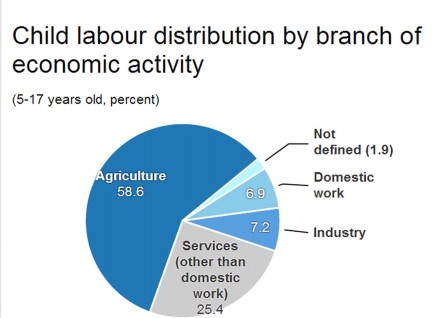Racism, xenophobia and unfair discrimination have spawned slavery, when human beings have bought and sold and owned and branded fellow human beings as if they were so many beasts of burden.
Education
Refugee Week: Asylum seekers ‘need our compassion’
THE theme of “restoring hope” to refugees shone through during Ali Ali’s speech on Saturday.
The former Afghan asylum seeker delivered the keynote address during the first western Sydney launch of Refugee Week at Granville Town Hall.
Ahead of the event, the 30-year-old Hazara man, of Merrylands, shared the tale of his journey from Jaghori in Afghanistan to Australia via Indonesia on a rickety boat with 130 others.
“Once you get on a boat, the risk is only of drowning,” Ali said. “Given the despair, that’s not a big risk.”
Ali fled at the peak of the Taliban’s power, when the religious extremists were kidnapping young Hazara men, taking them to the battleground and forcing them to fight: “The whole purpose was to wipe you out.”
As the persecution intensified, Ali’s mother — who died in a refugee camp told him to flee.
Alone, and only 17, he dodged the authorities and made it to a vessel he described as “unseaworthy”.
In May 2001, Ali landed at Christmas Island, after 36 hours at sea, to the words “welcome to Australia” and “you are safe”.
“What more can you expect than that?” he said. “The Australian authorities, including Customs and the people of Christmas Island, were so marvellous.
“I will never forget the treatment we received.”
After being detained at the remote Curtin Immigration Detention Centre, Ali enrolled at Holroyd High School and continued his studies while on a temporary protection visa.
He graduated from UNSW with a master’s degree in international law and international relations.
During those years, he worked non-stop, including as a forklift driver, a factory worker, food packer, tiler, car washer, labourer, cleaner, metal fabricator, strawberry picker and taxi driver.
In February, he moved into his own flat.
“It has not been easy,” he said.
“But it was not only my commitment, it was not only my hard work, it was also the support of the community and from my teachers . . . I was not alone.”
He said his message for Refugee Week was for Australians to “take a different look” at the issue of people seeking asylum.
“We don’t need a military solution for this humanitarian issue. We don’t need to punish these asylum seekers, those refugees who desperately need our help, our affection and our compassion.”
For more info visit-http://www.blacktownsun.com.au/story/2354340/refugee-week-asylum-seekers-need-our-compassion/?cs=1179
Sandals are considered cheap?
In Australia, sandals are considered as cheap and informal accessories. Being guilty myself, it is quite scary that people in wealthy countries are spending more money on fashion accessories rather than taking part in fixing this problem of poverty. This image is a strong example that even the smallest of donations, e.g. a pair of sandals, can make a difference.
Whenever I hear…
Whenever I hear anyone arguing for slavery, I feel a strong impulse to see it tried on him personally.
Abraham Lincoln
Child Labour
What is child labour
Defining child labour
Not all work done by children should be classified as child labour that is to be targeted for elimination. Children’s or adolescents’ participation in work that does not affect their health and personal development or interfere with their schooling, is generally regarded as being something positive. This includes activities such as helping their parents around the home, assisting in a family business or earning pocket money outside school hours and during school holidays. These kinds of activities contribute to children’s development and to the welfare of their families; they provide them with skills and experience, and help to prepare them to be productive members of society during their adult life.
The term “child labour” is often defined as work that deprives children of their childhood, their potential and their dignity, and that is harmful to physical and mental development.
It refers to work that:
- is mentally, physically, socially or morally dangerous and harmful to children; and
- interferes with their schooling by:
- depriving them of the opportunity to attend school;
- obliging them to leave school prematurely; or
- requiring them to attempt to combine school attendance with excessively long and heavy work.
In its most extreme forms, child labour involves children being enslaved, separated from their families, exposed to serious hazards and illnesses and/or left to fend for themselves on the streets of large cities – often at a very early age. Whether or not particular forms of “work” can be called “child labour” depends on the child’s age, the type and hours of work performed, the conditions under which it is performed and the objectives pursued by individual countries. The answer varies from country to country, as well as among sectors within countries.
The industry sector includes mining and quarrying, manufacturing, construction, and public utilities (electricity, gas and water).
The services sector consists of wholesale and retail trade; restaurants and hotels; transport, storage, and communications; finance, insurance, real-estate, and business services; and community as well as social personal services.
The worst forms of child labour
Whilst child labour takes many different forms, a priority is to eliminate without delay the worst forms of child labour as defined by Article 3 of ILO Convention No. 182:
(b) the use, procuring or offering of a child for prostitution, for the production of pornography or for pornographic performances;
(c) the use, procuring or offering of a child for illicit activities, in particular for the production and trafficking of drugs as defined in the relevant international treaties;
(d) work which, by its nature or the circumstances in which it is carried out, is likely to harm the health, safety or morals of children.
How many slaves work for you?
You may be living in wealthy countries, where food and health are for granted. Luxuries such as a mobile phones, fashionable clothes, etc. may just be another accessory stuffed and forgotten in the back of the closet. But what you may not know is that everything you own or eat is source by people from everywhere. This survey allows you to calculate the average number of slaves which may have been exploited by manufacturers to source the products you own. Get ready to be amazed!



